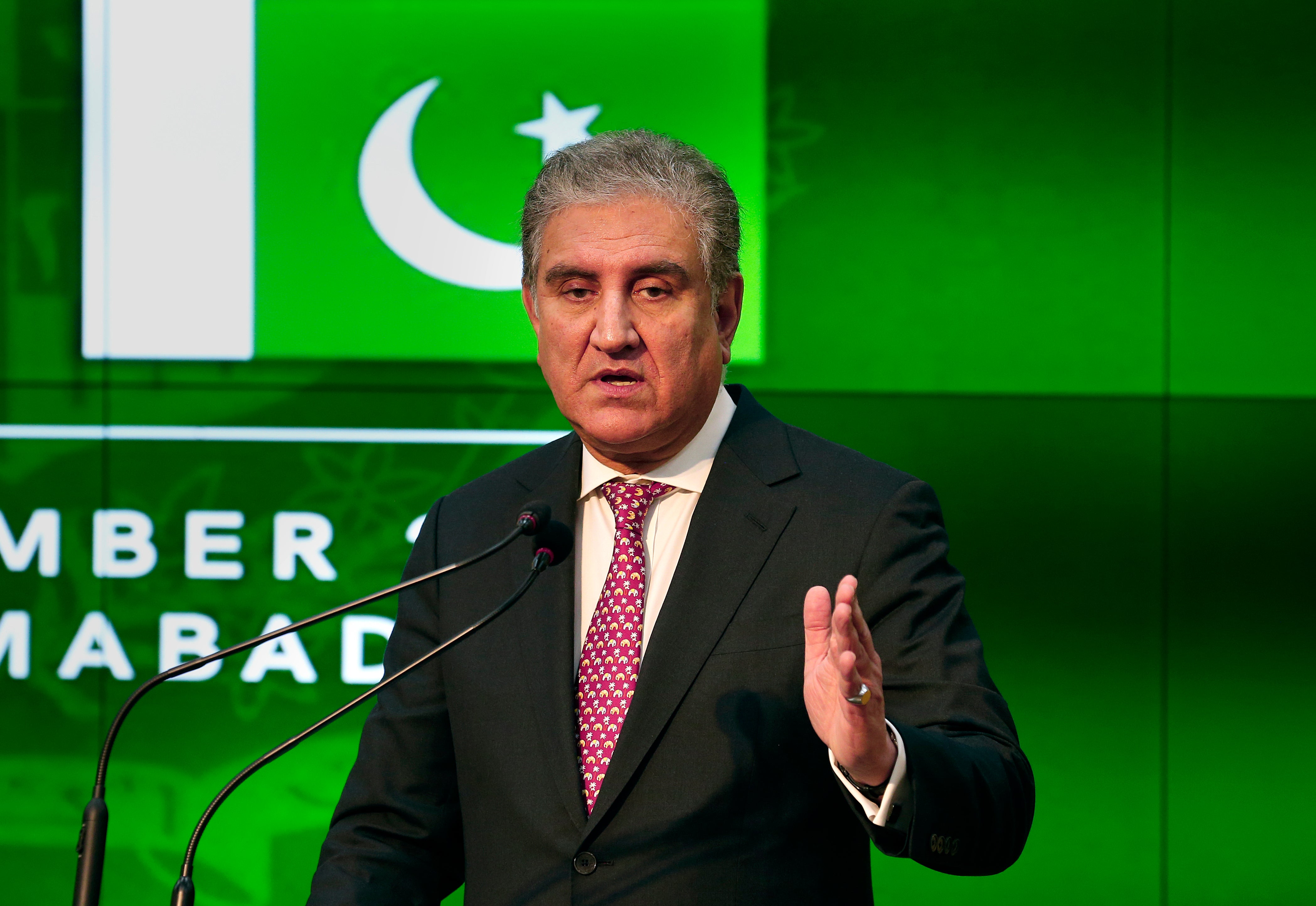Pakistan to rally Muslim countries to help Afghanistan
Pakistan is rallying Muslim countries to help Afghanistan stave off an economic and humanitarian disaster

Your support helps us to tell the story
From reproductive rights to climate change to Big Tech, The Independent is on the ground when the story is developing. Whether it's investigating the financials of Elon Musk's pro-Trump PAC or producing our latest documentary, 'The A Word', which shines a light on the American women fighting for reproductive rights, we know how important it is to parse out the facts from the messaging.
At such a critical moment in US history, we need reporters on the ground. Your donation allows us to keep sending journalists to speak to both sides of the story.
The Independent is trusted by Americans across the entire political spectrum. And unlike many other quality news outlets, we choose not to lock Americans out of our reporting and analysis with paywalls. We believe quality journalism should be available to everyone, paid for by those who can afford it.
Your support makes all the difference.Pakistan is rallying Muslim countries to help Afghanistan stave off an economic and humanitarian disaster while also cajoling the neighbouring country’s new Taliban rulers to soften their image abroad.
Several foreign ministers from the 57-member Organization of Islamic Cooperation (OIC) are meeting in Islamabad on Sunday to explore ways to aid Afghanistan while navigating the difficult political realities of its Taliban-run government, Pakistan’s top diplomat said on Friday.
The new Taliban administration in Kabul has been sanctioned by the international community, reeling from the collapse of the Afghan military and the western-backed government in the face of the insurgents’ takeover in mid-August.
The OIC meeting is an engagement that does not constitute an official recognition of the Taliban regime, said Pakistan's foreign minister Shah Mahmood Qureshi.
He said the message to the gathering on Sunday is: “Please do not abandon Afghanistan. Please engage. We are speaking for the people of Afghanistan. We’re not speaking of a particular group. We are talking about the people of Afghanistan.”
Mr Qureshi said major powers — including the United States, Russia, China and the European Union — will send their special representatives on Afghanistan to the one-day summit. Afghanistan's Taliban-appointed foreign minister Amir Khan Muttaqi will also attend the conference.
Afghanistan is facing a looming economic meltdown and humanitarian catastrophe in the aftermath of the Taliban takeover. Billions of dollars’ worth of the country’s assets abroad, mostly in the US, have been frozen and international funding to the country has ceased.
The world is also waiting before extending any formal recognition to the new rulers in Kabul, wary that the Taliban could impose a similarly harsh regime as when they were in power 20 years ago – despite their assurances to the contrary.
In an interview with The Associated Press last week, Mr Muttaqi said that Afghanistan's new rulers were committed to the education of girls and women in the workforce.
Yet four months into Taliban rule, girls are not allowed to attend high school in most provinces, and though women have returned to their jobs in much of the health care sector, many female civil servants have been barred from coming to work.
However, security has improved under the Taliban, with aid organisations able to travel to most parts of Afghanistan, including areas that for years were off-limits during the war, said a senior humanitarian official who spoke on condition of anonymity as they were not authorised to speak publicly on the matter.
The World Health Organization and UN agencies have warned of the humanitarian crisis facing Afghanistan and its 38 million people. Hospitals are desperately short of medicines, up to 95 per cent of all households face food shortages, the poverty level is soaring toward 90 per cent and the afghani, the national currency, is in freefall.
Pakistan has been at the forefront in pressing for world engagement in Afghanistan. Mr Qureshi said on Friday that he has warned in talks with many foreign ministers – including with US secretary of state Antony Blinken in Washington – that a total collapse in Afghanistan would hurt efforts to fight terrorism and trigger a massive exodus from the country.
Refugees would become economic migrants, he added, meaning they would not want to stay in neighbouring countries Pakistan and Iran, but would try to reach Europe and North America.
Mr Qureshi also warned that if Afghans are left without help, militant groups such as al-Qaida and the regional Islamic State affiliate will regroup and flourish amid the chaos.
The OIC has leverage because of its nature as an Islamic organisation and Mr Qureshi expressed hope that the summit will also be an opportunity for the world’s Muslim nations to press upon the Taliban the imperative of allowing girls to attend school at all levels and for women to return to their jobs in full.
Michael Kugelman, deputy director of the Asia Program at the Washington-based Wilson Centre, said OIC nations could do more, suggesting they work through their religious scholars who may be able to interact directly with the Taliban.
For now, it would be difficult for the west to engage with the Taliban, Mr Kugelman said, adding that such an interaction would be tantamount to admitting defeat in the 20-year war.
For the Taliban, it would be the “final satisfaction of being able to engage ... from the standpoint of victor”, he said.
“The Taliban defeated the west ... their powerful militaries and caused them to suffer through a chaotic and humiliating final withdrawal," he said. “For the west to turn around and bury the hatchet with the Taliban, this would amount to a legitimisation of its defeat."